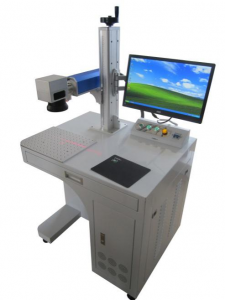
How Will Artificial Intelligence Shape the Cities of the Future
Artificial Intelligence (AI) has come far from its early days of being a theoretical idea. Today, many companies have found practical applications of AI, which they see as opportunities with great potential. Individuals and enterprises alike are leveraging the novel technology to automate businesses, fundamentally routine tasks. However, the public sector still painfully lags behind, with most governments overlooking critical opportunities.
The opportunity remains there for the taking, and governments are in the early stages of examining how AI can enhance administration and life at the city level. Dubai is realising this Smart City tag, with the completion of Dubai’s Smart City – a full-scale implementation of AI applications – expected in 2021.
In this article we detail how cities can catch up and prepare for artificial intelligence in 2020, incorporating cutting edge technologies while avoiding its superficial hype.
How Can Cities Benefit from AI?
Below is a short non-exhaustive list of city-level applications in which AI has already proven itself.
AI-based Power Grids
The inefficiency in time that arises from traffic is staggering, especially in cities like London and New York. The former’s drivers spend 227 hours in traffic, while the latter’s spend 107 hours searching for parking. Other cities experience similar problems and there is no sign of this diminishing. Besides resulting in inefficiencies, the threat of a lack of parking can have knock-on effects of increased fuel consumption, pollution, and expenditure.
But AI can highlight parking spots with LED signs, and, in combination with the Internet of Things (IoT), even broadcast the location of empty parking spots to a vehicle. The future will certainly have autonomous vehicles that use data to discover the most convenient parking spot over a wide area.
Traffic Management
Traffic challenges translate into financial cost, amounting to $87 billion in the United States alone in 2018. The number of traffic jams is only expected to rise as the world population as the number of vehicles (both public and private) continues to grow.
But governments can install sensors and cameras at intersections to collect data, and manage traffic with an AI-based central system. The system can then redirect traffic away from congestion and road accidents.
Smart Waste Management
In under a decade, the world’s population will cross the 8 billion mark. A complication in numerous ways, one particularly worrisome problem is that of waste management. Here too can AI improve plug holes in efficiency and ensure the effectiveness of waste collection and disposal.
Other applications include training robots to remove garbage from water streams and managing an array of smart trash bins that inform personnel about when it should be emptied.
Smart Lighting
A combination of factors is encouraging the growth of smart lighting. Solar power is increasingly powering street lighting, presenting an opportunity to leverage embedded sensors. This includes the detection of gun violence – Shotspotter uses sensors placed inside GE Intelligent Street Lights to detect the sound of gunfire. The company detected 74,916 gunfire incidents and alerted authorities of the locations last year.
Dubai’s Smart City will be the First Realisation of a Smart City Strategy

With a budget of $7 billion and more than 100 initiatives, Dubai’s Smart City strategy is unprecedented. The Government desires to transform over 1,000 services, including that in the fields of governance, traffic management and transportation, economy, and environment.
At the start of all of this digitisation, however, are the companies that design these solutions. The past few years have seen startups targeting both private organisations and governments appear across the world. This rapid and spread growth in such a short span of time has made it difficult for Venture Capital firms and investors to identify promising startups, as a result of a lack of actionable insights and real-time data on the global startup ecosystem.
Startups like Oddup offers real-time tracking of startups spanning various geographies and industries, including AI, to help individuals make crucial investment decisions before the window of opportunity closes.



